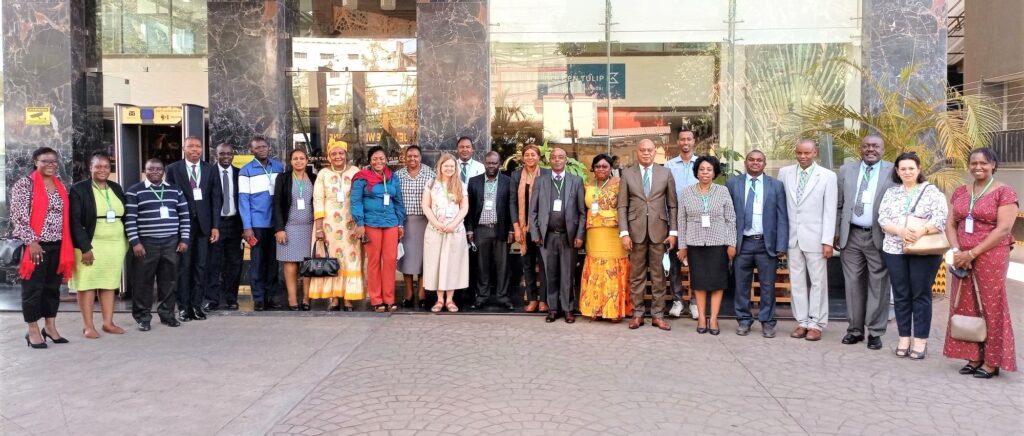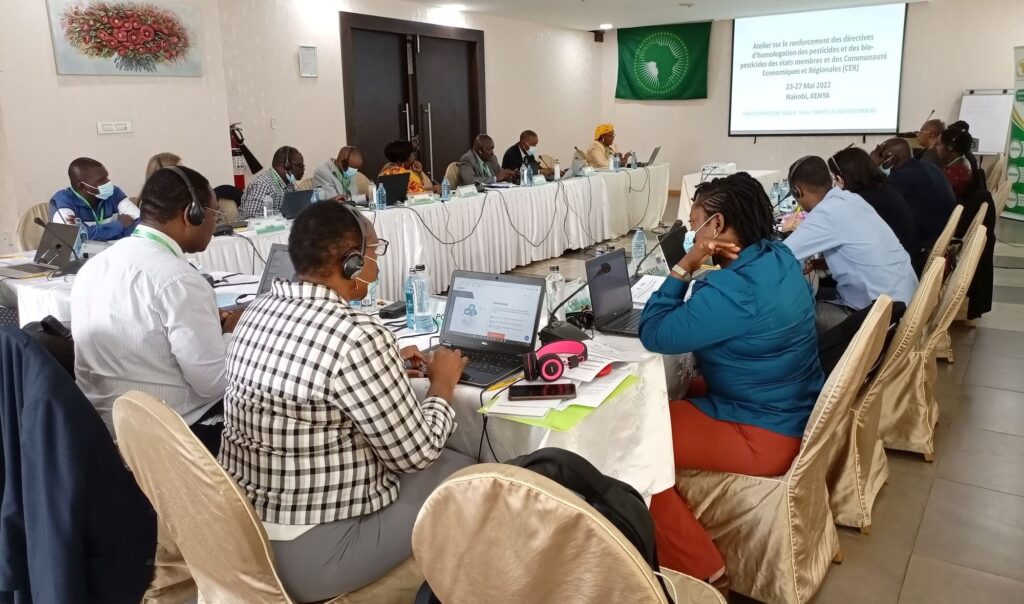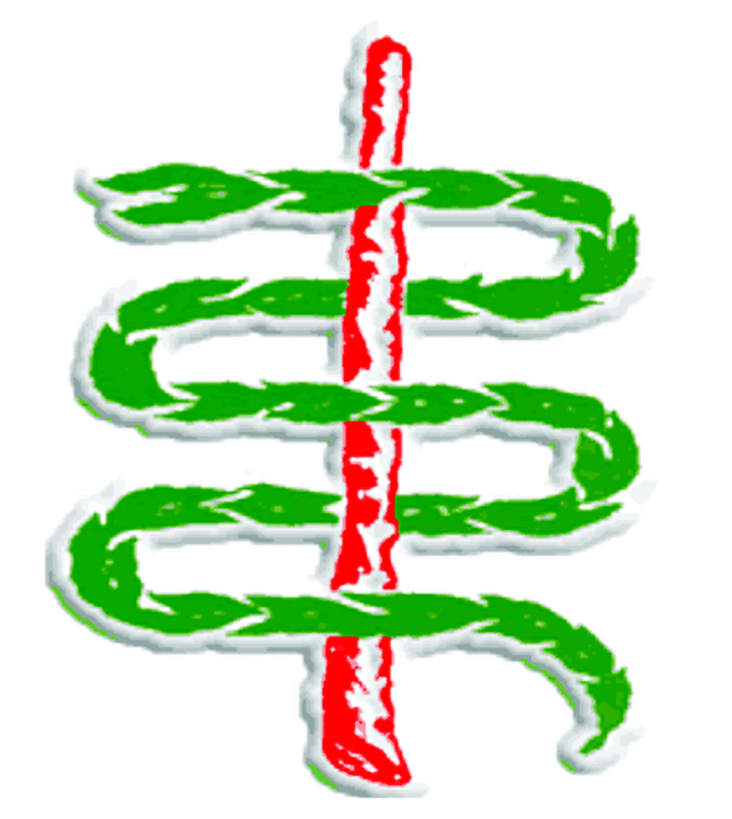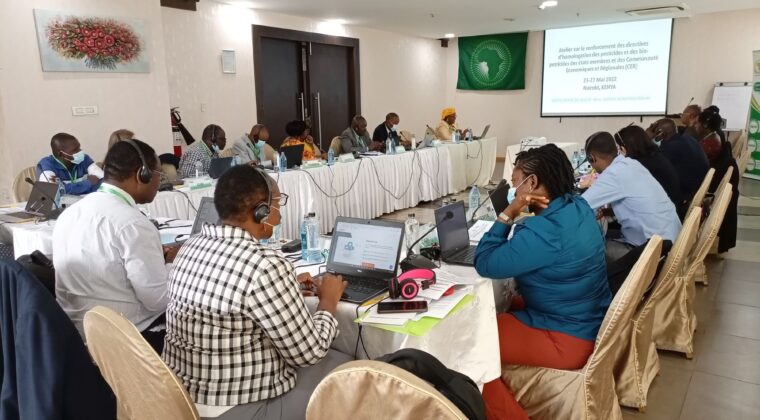Harmonize Africa’s best practices in plant health – experts
By Chipiliro Kansilanga in Nairobi, Kenya
Joint strategies, sharing of scientific research and harmonization of best practices among African countries can greatly enhance the protection of plant health resources in the continent.
This was underlined on Monday in Nairobi Kenya where African Union Inter-African Phytosanitary Council (AU-IAPSC) is building the capacity of African Member States in pesticides and biopesticides registration guidelines.
The meeting has drawn together over 15 Member States, partners and other stakeholders in plant health management.

NPPO representatives and plant health experts at the beginning of the AU-IAPSC pesticides and biopesticides registration guidelines workshop in Nairobi, Kenya. Pic by Chipiliro Kansilanga
AU-IAPSC Director Dr Jean Gerard Mezui M’ella said the meeting will identify strategies and key actions to streamline and harmonize registration of pesticides and biopesticides in addition to promoting information exchange among registration authorities.
This need for speedy harmonization was further highlighted by a number of Member States who shared best practices and success stories in the management of plant health resources.
In her remarks, Dr. Esther Kimani, Chief Executive Officer of the Kenya Pest Control Products Board (PCPB) said the challenges facing pesticides registration in the continent speak to the need for quality standards and collective solutions in plant health management.
“We need an environment of more research in Africa, construction of more laboratories for ensuring pest and pest product quality and intentional collaboration beyond what we have seen in the continent,” she said.
Speaking on behalf of Kenya Plant Health Inspectorate Service (KEPHIS), Dr Isaac Macharia said the pest and pesticides challenges are common hence the need for collective solution.
“The challenges facing the agricultural community are not unique to Kenya but affect each of the countries represented here. Our actions towards a streamlined and harmonized registration process is very timely and would directly impact Kenya’s agriculture and offer solutions to some of the aforementioned challenges,” he said.

Participants to the AU-IAPSC pesticides and bio-pesticides workshop following a virtual presentation. Pic by Chipiliro Kansilanga
Representing the Kenyan government, Mr Joseph Kirubi from the Ministry of Agriculture, Livestock, Fisheries & Co-operatives challenged the participants to employ a solution-minded approach to the deliberations in order to realize potential harmonization of pesticide regulation across Africa.
He shared a number of achievements which the Kenyan government had successfully implemented, from which the Member States could learn and reproduce results.
At the end, the meeting also hopes to get acquainted with a Communication Plan relating to the best phytosanitary practices and guidelines and help in the exchange of ideas around common objectives, development of synergies, partnerships and innovative programs.
The workshop has drawn together Chad, Cameroon, Central African Republic, Democratic republic of Congo, Gabon, Gambia, Ivory Coast, the host Kenya, Malawi, Niger, Somalia, Tunisia, Uganda and other partners and stakeholders such as KEPHIS, PCPB, Centre for Agriculture and Bioscience International (CABI).



